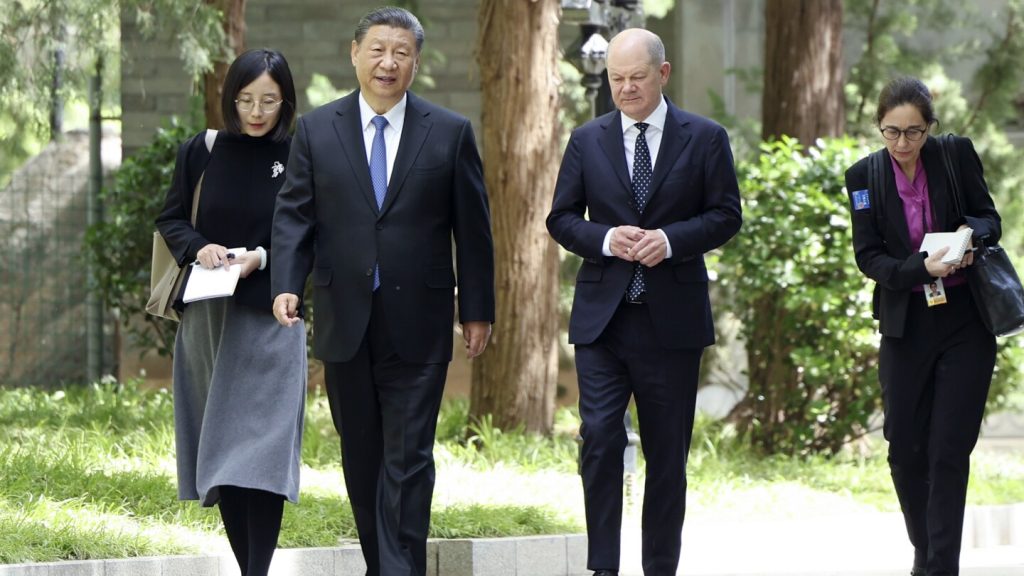German Chancellor Olaf Scholz met with Chinese leader Xi Jinping to ask for pressure on Russia to end its campaign in Ukraine. Despite China’s continued blame on Europe and the U.S. for the conflict, Scholz believes there is progress towards diplomatic efforts to end the war. This appeal comes as China has refrained from criticizing Russia’s invasion and has even increased trade with Moscow in response to Western sanctions. The U.S. has raised concerns that China’s equipment sales to Russia indirectly support its war effort.
During the talks, Scholz also addressed China’s exports of dual-use goods, which can have both civilian and military applications. He emphasized the importance of ensuring that no weapons exports occur and that the issue of dual-use goods is not overlooked. In addition, both leaders expressed opposition to the use of nuclear weapons, with Putin previously issuing threats of nuclear weapon use in response to threats to Russian sovereignty. They stressed the importance of upholding the U.N. Charter and supporting peaceful resolutions to the crisis.
Trade-related tensions were also a key focus of the discussions, with concerns raised about China’s unfair competition practices, particularly in industries such as solar panels and electric cars. The EU is considering tariffs to protect its producers from cheaper imports, and Scholz called for improvements in areas such as market access, fair competition, intellectual property protection, and the legal system for German companies operating in China. Despite these challenges, China remains Germany’s top trading partner, with significant trade volume between the two countries.
This visit highlights the ongoing trade and political frictions between China and Germany, as well as the broader challenges in the global trade landscape. Despite the disagreements, both countries have reaffirmed their commitment to dialogue and cooperation on various issues. This visit is Scholz’s second trip to China since becoming chancellor, and it comes in the context of Germany’s China strategy that was presented last year. The discussions also touch on the need for both countries to address protectionism and work together on key economic issues.
Overall, the meeting between Scholz and Xi illustrates the complex dynamics at play in the international arena, with tensions over conflicts like the war in Ukraine, economic competition, and broader geopolitical challenges shaping the dialogue between key global players. The appeal for China to use its influence on Russia reflects the interconnectedness of global issues and the role that major powers like China play in addressing conflicts and promoting peace. Despite the differences and disputes, the leaders emphasize the importance of upholding international norms and seeking peaceful resolutions to crises.


